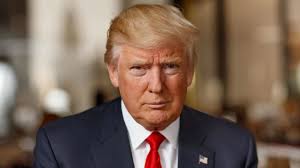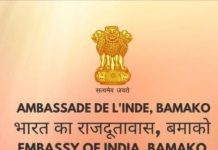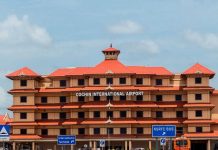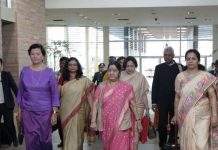Pakistan’s media is in overdrive, accusing India of fueling unrest in Balochistan and backing the Afghan Taliban. It sure has caused anxiety in New Delhi, but India’ s reluctance to be drawn to any discussion on this issue appears to be justified. by Gopal Misra

The Pakistani media’s recent outbursts against India’s growing proximity with the Taliban regime in Kabul, especially in the context of the Baloch uprising, has been causing anxiety in India. The response of the Indian foreign office, however, has either been subdued or quiet.
On the other hand, the news dailies and television channels across Pakistan have been blaming India for the Baloch rebellion as well as the violence unleashed by the Tehrik-e-Taliban of Pakistan (TTP) in the areas bordering Afghanistan. The situation is worsening with each passing day in the Khyber Pakhtunkhwa or KPK and Balochistan.
The apprehension among the foreign affairs scholars is natural that in a bid to keep the people subjugated and for diverting their attention, Islamabad appears to be blaming India for the escalation of the ethnic conflict. It may be a repeat of the 1971 war with India. The situation, however, witnessed a sudden change during the third week of March this year, when the Trump Administration decided to drop Sirajuddin Haqqani and two others from its terror list. They belonged to the dreaded Haqqani network. Sirajuddin had recently been serving as the interior minister in the Taliban regime. He, however, has been sacked amidst the reports that he was conspiring with the Pakistani secret police, Inter-services Intelligence (ISI) to dethrone Taliban in Afghanistan.
It appears that with their names removed from the American list of terrorists, the US may be trying to broker peace between the Afghan Taliban and the Haqqanis.
The proximity between the ISI and Haqqanis can be traced to the eighties, when they had jointly worked for creating a worldwide network of Islamists and Jihadists under the guidance and funding of the US-led West. The close relationship between the West and Muslim terrorists collapsed following the incident of the 9-11 of 2001, when the Haqqanis and al-Qaeda attacked New York and Pentagon. Further, their relationship worsened during the 20-year war between the Taliban forces and the US-led coalition army. During this period, the Pakistani military dictator Musharraf officially supported the West, but continued to support the Haqqanis in the army’s well protected centres. Later, Washington realized that for Islamabad, the US engagement provided it access to huge American support. The removal of the two other associates of Sirajuddin, Abdul Aziz Haqqani and Yayha Haqqani from the terrorists’ list also indicate that it could be followed by a new approach of the White House in dealing with the Taliban Government.
It might get financial assistance and later recognition. In these sensitive parleys, Islamabad has not been involved. The US has also withdrawn the reward of the 10 million USD for destroying the Haqqanis.
It, thus, not only finally thwarts the Pakistani strategy for penetrating the Taliban Government, but also shatters the dream of getting huge financial support from the US as a country engaged in the war against terrorism.
The impact of the US decision was also noticed during the recent visit of Sadiq Khan, a special Pakistani envoy deputed for negotiating peace with Kabul. He could not assert the agreement the Pakistani army wanted between Kabul and Islamabad. His earlier visit in 2023 had also failed, because it was led by the defence minister, Khwaja Asif, not known for the polite exchange necessary in such sensitive negotiations.
Meanwhile, it is also being evaluated on the implications of the recent appeal of Nawaz Sharif, a three times prime minister of Pakistan, asking for the redressal of the grievances of the people of Balochistan and KPK by initiating discussion for a solution to end the insurgency.
Olive branch
It is difficult to assess the impact of these recent developments immediately: whether these happenings are being done in coordination or took place separately. The removal of the Haqqanis from the terror list, stated to be bargained for the release of an American citizen, George Blazmann, does not fit in the larger picture of changing alliances and loyalties in the region. The quiet return of the former US special envoy for Afghanistan, Zalmay Khalizad, who reportedly has played a key role in the release of the American captive, in the US-Afghan talks, might lead to a paradigm change in the present military-strategic environment in the region. The olive branch from Trump is being reciprocated by Nawaz Sharif. He has stated that “there cannot be a military solution to the ongoing rebellion in Balochistan”.
Since April 2022, when the then Prime Minister, Imran Khan, was ousted from office through a no -confidence motion in the National Assembly, Nawaz Sharif has been playing the role of a guide and helping the army and other institutions to regain their prestige without holding a government position.
It is recalled that in spite of being in the shadows, he didn’t indulge in any political rhetoric despite being jailed and humiliated. He already has partially returned to the country’s politics by becoming the president of the ruling Pakistan Muslim League (Noon) or PML-N. His return to the national politics is expected to give the much needed stability to the Pakistani state. With this backdrop, he might also prevail upon the Pakistani army chief, Asim Munir, to avoid any confrontation with India and Afghanistan. The region may soon be facing a new play of international power games with the return of the US interests in this fluid political situation. The moves of the American special envoy to the region need to be watched carefully; whether his bid for a peaceful resolution to usher in peace in the region has a long-term agenda or just a goodwill mission.
The US decision to remove the Haqqanis from the terror list, however, indicates that a new understanding between Kabul and Washington in near future cannot be ruled out. These developments might also adversely affect the Pakistani aspirations in the region.
War cry
The Pakistani media has launched a full throated campaign against India for supporting the Afghan Taliban Government and the Baluch uprising. It must have caused anxiety in New Delhi, but India’ s reluctance to be drawn to any discussion on this issue appears to be justified.
There is a growing realization in New Delhi that the ongoing blame game against India by Pakistan could be an effort to push a conventional war between the two countries to camouflage the failure of the present hybrid government in Islamabad in giving justice to its minorities.
It appears that these developments are also adversely affecting the fragile social relationships among the people of provinces. The anger against the uniform is being diverted towards the people of Punjab, perhaps they constitute a majority in the defence forces.
The solution to the ongoing conflicts within Pakistan could be resolved only by sharing natural resources with the people of provinces and also by upholding their democratic rights. The army has to return to the barracks, but its officers have been using proxies to do illegal mining of rare metals in Balochistan with the help of the Chinese companies. It is difficult to stop them from this loot. The situation appears to be worsening with each passing day.
The Sadiq Khan mission to Kabul appears to have finally failed, but for finding an amicable solution the communication between the two friendly neighbors must continue. The Taliban regime had refused to take the threats of the Pakistani army; instead its acting foreign minister, Amir Khan Mustaqi, told Sadiq Khan to take appropriate steps for normalisation of their ties. It means that Pakistan should remove trade barriers and deal with the problems of the Afghan refugees with a friendly approach.












